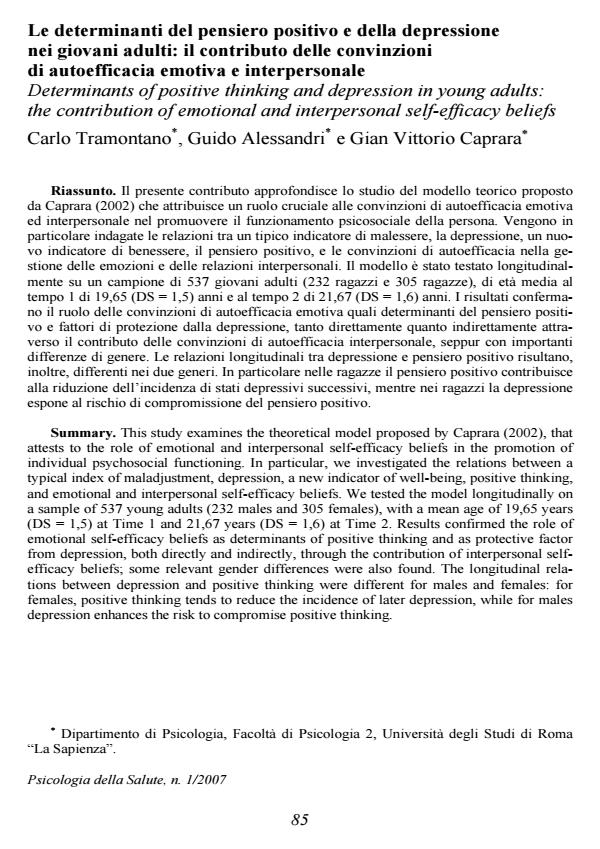Le determinanti del pensiero positivo e della depressione nei giovani adulti: il contributo delle convinzioni di autoefficacia emotiva e interpersonale
Journal title PSICOLOGIA DELLA SALUTE
Author/s Carlo Tramontano, Guido Alessandri, Gian Vittorio Caprara
Publishing Year 2008 Issue 2007/1
Language Italian Pages 17 P. 85-101 File size 451 KB
DOI
DOI is like a bar code for intellectual property: to have more infomation
click here
Below, you can see the article first page
If you want to buy this article in PDF format, you can do it, following the instructions to buy download credits

FrancoAngeli is member of Publishers International Linking Association, Inc (PILA), a not-for-profit association which run the CrossRef service enabling links to and from online scholarly content.
This study examines the theoretical model proposed by Caprara (2002), that attests to the role of emotional and interpersonal self-efficacy beliefs in the promotion of individual psychosocial functioning. In particular, we investigated the relations between a typical index of maladjustment, depression, a new indicator of well-being, positive thinking, and emotional and interpersonal self-efficacy beliefs. We tested the model longitudinally on a sample of 537 young adults (232 males and 305 females), with a mean age of 19,65 years (DS = 1,5) at Time 1 and 21,67 years (DS = 1,6) at Time 2. Results confirmed the role of emotional self-efficacy beliefs as determinants of positive thinking and as protective factor from depression, both directly and indirectly, through the contribution of interpersonal selfefficacy beliefs; some relevant gender differences were also found. The longitudinal relations between depression and positive thinking were different for males and females: for females, positive thinking tends to reduce the incidence of later depression, while for males depression enhances the risk to compromise positive thinking.
Carlo Tramontano, Guido Alessandri, Gian Vittorio Caprara, Le determinanti del pensiero positivo e della depressione nei giovani adulti: il contributo delle convinzioni di autoefficacia emotiva e interpersonale in "PSICOLOGIA DELLA SALUTE" 1/2007, pp 85-101, DOI: